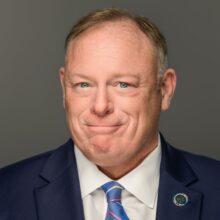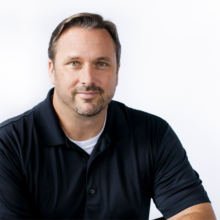
Over the last two years, educators have grappled with change and challenges. Unfortunately, pandemic-driven logistical lurching, budgetary uncertainty, and divisive politics have consumed much of the time we might have had for strategic conversations about how we can better our schools, communities, and students.
The time is now to hold these difficult conversations. According to federal data, all states and the District of Columbia collectively report an unmet need of approximately 410,000 teachers for the 2021-22 school year. A recent report from the N.C. Department of Public Instruction showed 1,646 vacant teaching positions across the state.
As a new year commences, we’d like to offer five resolutions to consider for educators, policymakers, and community leaders:
Catalyze conversations on digital learning infrastructure
The first resolution is to ignite a conversation about digital learning infrastructure — advancing practice and shaping policy about technology, with technology, and beyond technology in education. In the urgent shift to remote learning during the pandemic, it’s clear we live in an education technology landscape of “haves and have nots.”
Educational institutions should work continually with partner associations and government entities to take bold action. Finding and implementing solutions to remove barriers to digital access and affordability is paramount in keeping students engaged, motivated, and successful in learning.
Reimagine our learning models
According to a report by the Christensen Institute, we have no shortage of options when it comes to reimagining education. New curricula, technologies, pedagogies, and programs abound. We need to help students embrace and grow their skillsets and knowledge — and contribute new applications and ideas to the mix — so that when they complete their public or private education, they are prepared for college or meaningful careers.
One reimagination worth exploring is whether grades should remain the dominant mode of assessment and progression. Mastery learning allows educators to build a system of instruction based on grace and challenge, where students are rewarded for not giving up. Indeed, they are challenged to try and try again until they demonstrate mastery of the content. One excellent resource is the Mastery Transcript Consortium — a group of public school districts, private schools, and leading universities.
Strike a thoughtful balance on educator self-care and professional development
A recent RAND Corporation survey found that 78% of K-12 teachers reported experiencing significant job-related stress during the pandemic. District leaders are working with teachers and principals to design and implement various mental health and wellness support initiatives. They are hiring behavioral health counselors not only for students but also for teachers and teacher assistants.
There can also be real value in providing professional development that helps with self-care strategies and with precision skill-building aimed at assisting teachers in making the most of new technical systems.
Champion healthy learning
Now, more than ever, it’s time for education leaders to prioritize healthy learning. Our conception of a healthy learning environment for schools, colleges, and universities involves the braiding together of often single-stranded and isolated initiatives involving diversity, equity, and inclusion (DEI); social and emotional learning (SEL); mental health; basic needs; and character education, civility, and thriving. By bringing together our research, reflection, policy, and practice around these initiatives, we can help create a healthier environment for learning.
Healthy does not mean easy. It means creating a situation where a student can do the work and thrive, where their academic, physical, psychological, and social selves can be better formed and effectively developed. A healthy learning environment is also necessary for our leaders and board members. As such, this conversation should extend into governance and community engagement.
Embrace regional education ecosystems
The more we unpack and examine what constitutes effective learning systems for students, the more we come to understand that all parts of a regional education ecosystem — early learning, K-12, community colleges, colleges, and universities — are interconnected. Each element can effectively promote or painfully disrupt and disconnect education journeys.
Western Governors University’s Teachers College has partnered with more than 2,600 school districts and more than 500 community colleges nationwide, including many right here in North Carolina. As a result, we help prepare rising teachers and support the professional journeys of existing teachers and leaders. In these regional partnerships, we see our mission of “opening pathways to possibility” genuinely come to life.
We list this resolution last because of a hard truth: they are all dependent on our ability and willingness to work together. So, let’s commit to taking a moment and diving together into substantive conversations and good work on these resolutions. Making progress on each of these will help us take vital steps on a journey toward new possibilities in 2022 and beyond.



